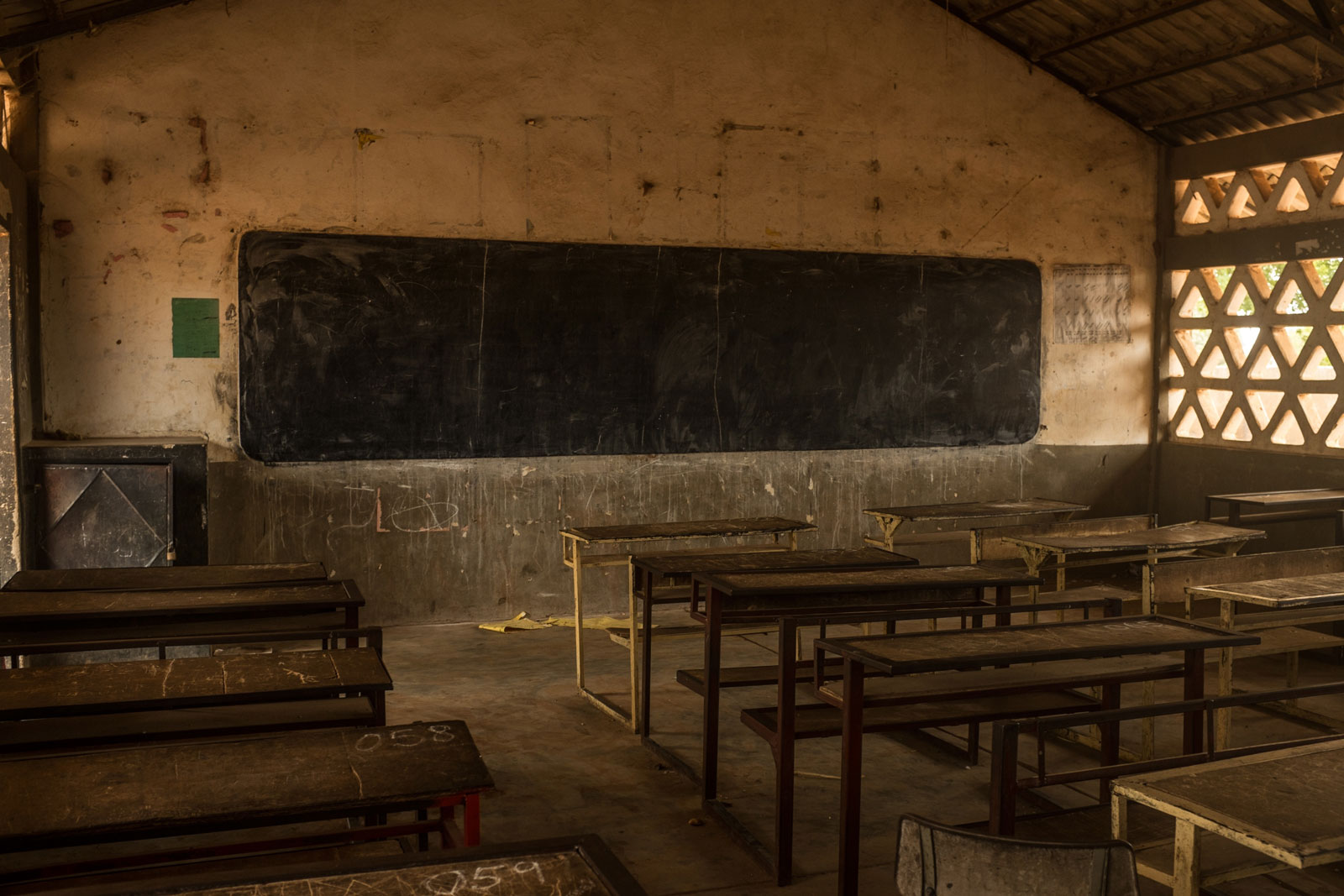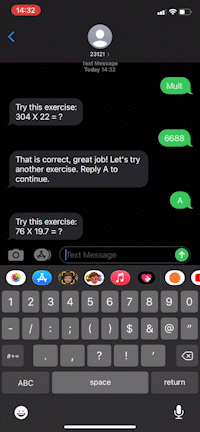ElimuLeo – Adaptive STEM Education for Pandemic-Affected Children
ElimuLeo (Swahili for "Education Today") harnesses the distributive power of mobile technology to provide children with access to adaptive mathematics problem sets. Launched in Kenya on December 8, 2020, ElimuLeo is Precision Development’s first initiative that is not linked to agriculture.

The service was initiated to promote learning among children affected by school closures implemented to stem the COVID-19 pandemic. Schools in Kenya were closed for nine months in 2020 and reopened for in-person instruction in January 2020. The service is delivered by PxD with funding from the Dioraphte Foundation.
Built entirely on Paddy, PxD’s communications platform, Elimuleo allows rapid learning and iteration, and flexibility to deliver personalized service. ElimuLeo sends mathematics problems to primary school students via SMS. The service contains exercises on seven topics: addition, subtraction, multiplication, division, mixed exercises (e.g. an addition problem, followed by a division problem), combined exercises (that is, problems with multiple operations such as “5 * 7 + 16”) and algebra.
 Each topic is broken down into levels based on the skills learners should master in a given term of the school year (the Kenyan school year has three terms) based on the national curriculum. Using an approach similar to Teaching at the Right Level (TaRL), ElimuLeo adjusts the difficulty of problems based on the recipient student’s demonstrated skill level.
Each topic is broken down into levels based on the skills learners should master in a given term of the school year (the Kenyan school year has three terms) based on the national curriculum. Using an approach similar to Teaching at the Right Level (TaRL), ElimuLeo adjusts the difficulty of problems based on the recipient student’s demonstrated skill level.
When learners sign up to ElimuLeo, we ask them to provide their grade level and send them an initial assessment. The first question of each assessment is pitched at the skill level associated with term 1 of the learner’s current grade level. If a user answers the first question correctly, the subsequent question will be set one full grade level above that the student initially declared. ElimuLeo will deploy progressively more difficult questions in increments of one grade until the learner answers a question incorrectly. When this occurs, the system will transmit a question associated with a one-term reduction in educational proficiency until a question is again answered correctly. At this point, the assessment ends and the student will begin receiving exercises at that level. The assessment works the opposite trajectory if a learner answers the first question incorrectly.
ElimuLeo also uses an algorithm to generate random problems at a specified difficulty level so that students will not see repeated problems while using the service, even if they engage the platform over an extended period.
Based on platform engagement data, we have observed high interest in the service during out-of-school times; and a drop in usage when school is in session. This may reflect limitations on students’ time and parents’ concerns that ElimuLeo competes with the official school curriculum. Moreover, some boarding school learners will not have access to mobile phones when the school term is in session (as they rely on access to their parents’ phones).
In conversations with teachers, PxD staff have learned that teachers feel that they have more tasks than they are able to accomplish in the school day. Providing individual attention and feedback to students as they work on practice problems is especially time-intensive and takes away time for teaching new topics and providing attention to students who are falling behind. Teachers try to set homework assignments each evening so that students can practice what they are learning in the classroom. However, the teacher has limited time during the school day to mark assignments and is often spending teaching time working on this task. It also means that the teacher has less time to look at how students are doing with the concepts that they are learning to see which topics are challenging for individual students or the class as a whole.
In response to this, the PxD team is developing a service that will allow teachers to set homework assignments on a specific topic for students using the ElimuLeo platform. The students will use a parent’s phone in the evening to complete the exercises via SMS and in the morning, the teacher will receive a report with summary information and marked worksheets for the students in their class. This will allow the teacher to understand how the class is performing as a whole, but also to identify what skills individual students are struggling with so that the teacher can provide them the support that they need. Moreover, in conversations with parents, PxD learned that parents are interested in being more involved in their children’s education. PxD is also working to develop reports to share with parents in order to let them know how they are progressing in school.
We are very excited about the success of our initial ElimuLeo service. In short order, we were able to apply our skills and adapt a system built for digital agricultural extension and advisory to facilitate educational learning. We have developed an initial education service with incredibly low staff costs. We can observe user interactions with the platform to improve user experience. Moreover, the overall investment in Paddy to automate functionality means that this is our first service developed with significant automation built into the initial offering. This means that the service lends itself to rapid data collection, observation, learning, and iteration, with lessons learned that may apply to the development of new educational – and agricultural – services.
